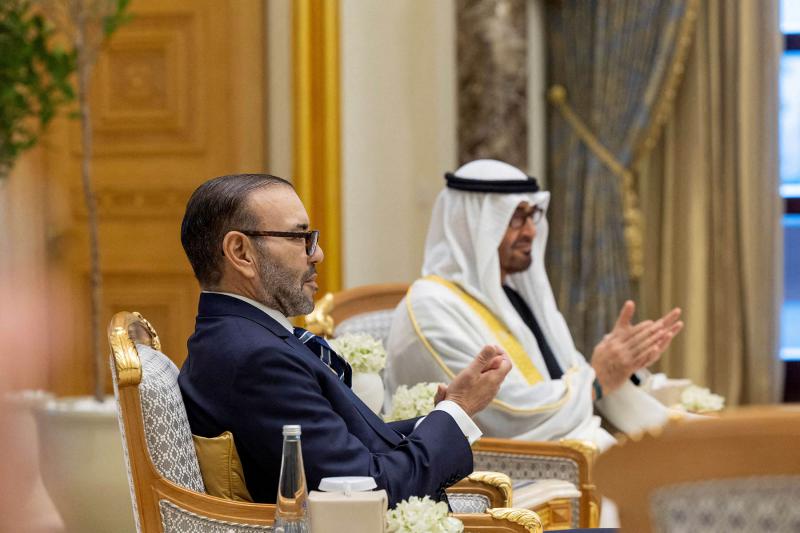Photo caption: Sheikh Mohamed bin Zayed Al Nahyan, President of the United Arab Emirates, meets King Mohamed VI of Morocco during a state visit reception at Qasr Al Watan in Abu Dhabi, United Arab Emirates, December 04, 2023. REUTERS
The has concluded plans to contribute to financing the construction of a natural gas pipeline linking Nigeria to Morocco and stretching north to Europe. The estimated worth of the project is $25bn.
According to local media in the foreign nation, Morocco’s Minister of Energy Transition and Sustainable Development, Leila Benali, told parliament about the UAE decision, adding that the project has already received the backing of several institutions.
“As for finance, the project has won the support of the Inter-American Development Bank, the Organisation of the Petroleum Exporting Countries Fund, the European Investment Bank, and the UAE,” she said.
She added that “Morocco has completed all preliminary feasibility and engineering studies for the planned gas pipeline that will connect Nigeria to Morocco.”
According to industry sources, the project, which has the backing of the Economic Community of West African States, was said to have passed the feasibility study and Front-End Engineering stages.
The first phase would connect Morocco to the gas fields offshore Senegal and Mauritania, as well as Ghana to the Ivory Coast. The second phase will connect Nigeria to Ghana, and the last phase will link the Ivory Coast to Senegal.
The pipeline, which will stretch across 15 African countries, will connect Nigeria’s gas network to Morocco’s southern city of Dakhla before stretching northward.
The minister also told legislators that China’s Jingye Steel Group has been awarded a contract to supply pipes for the project.
Renamed the ’African-Atlantic Gas Pipeline’, the gas pipeline construction is considered a strategic project that reflects Morocco’s ambition to strengthen South-South cooperation.
Nigeria and Morocco have agreed to establish a joint venture to manage the massive project, after the two countries signed a financing agreement for the project.
The project will boost electricity supply in several African countries, while expanding economic cooperation between the countries concerned, in an overall region comprising more than 400 million inhabitants.
The extension of the gas pipeline across several countries provides opportunities for economic integration by improving regional infrastructure, enhancing cooperation between governments and companies, and expanding industrial development in a vital part of the African continent.
The Morocco-Nigeria pipeline, agreed in 2016, will stretch over 6,800 km, including 5,100 km offshore. The historic project is expected to set a record as the world’s longest offshore gas pipeline.
Benali said the kingdom is also striving to become a regional hub for renewable energy and has a strong potential to produce green hydrogen products.



